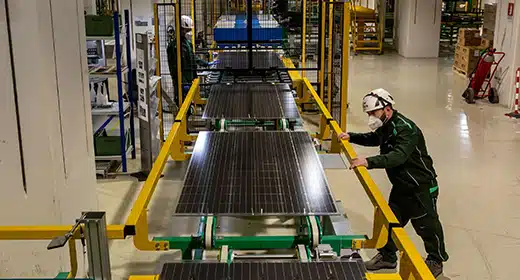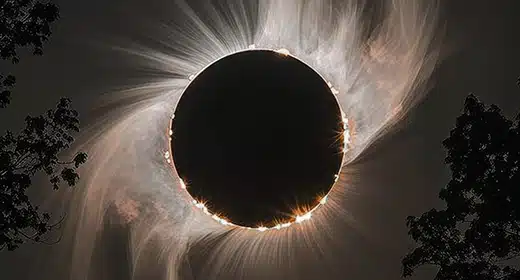byJohn Engel: European renewable energy leaders have formed an alliance aimed at reviving the continent’s solar supply chains.

With support from the European Union, the European Solar PV Industry Alliance (ESIA) launched on Dec. 9. The alliance set a goal to reach 30 GW of committed European solar PV manufacturing capacity by 2025 across all value chain segments.
Thierry Breton, the Commissioner for Internal Market at the European Union, described the alliance as a key initiative to decrease supply chain dependencies.
Chief executives from Enel Green Power, Engie, Meyerburger, and REC Group were among the signatories of a joint statement supporting the ESIA.
The effort is further recognition that Europe’s lack of a clean energy industrial policy threatens efforts to phase out fossil fuels and combat climate change.
Formation of the alliance comes days after U.S. and European leaders met to discuss the impact of America’s climate law, the Inflation Reduction Act, which incentivizes domestic manufacturing throughout the solar value chain.
Italy’s Enel, for example, has announced plans to build a 3 GW cell and module plant in the U.S. in response to the Inflation Reduction Act. The company’s subsidiary, 3Sun, operates a 200 MW solar manufacturing facility in Italy with plans to expand production capacity there to 3 GW.
The U.S. and Europe agreed to move forward in discussions about how to resolve concerns related to the climate law from European leaders. While no deal was reached at the meeting, the group will form a new Transatlantic Initiative for Sustainable Trade to support shared climate goals.
A joint statement released by the U.S. and EU said: “We acknowledge the EU’s concerns and underline our commitment to address them constructively.”
Speaking to reporters, Secretary of State Antony Blinken reiterated President Joe Biden’s commitment to work with his counterparts in Europe to resolve their concerns. Valdis Dombrovskis, the European Union commissioner for trade, said that he left the meeting “slightly more optimistic” than when he went in.
The U.S. law provides incentives for module assembly as well as cell, wafer, polysilicon, and backsheet production.
Jochen Hauff, director of corporate strategy, energy policy, and sustainability for German clean energy giant BayWa r.e., said the initiative is evidence that the EU “seems to be moving toward a relaxation of its State Aid rules to enable the re-birth of a European PV value chain.”
“This is big, given previous attitudes. And it is a necessary precondition for a speedy reaction to the (Inflation Reduction Act) of the USA,” he said in a LinkedIn post.
The news is positive for the global solar industry, according to Michael Parr, executive director of the Ultra Low Carbon Solar Alliance, which advocates for a diverse and sustainable solar supply chain.
“Given the scale of PV deployment required, we need large-scale PV manufacturing in many locations globally to ensure the kind of resilient, sustainable supply chain that will be necessary for success,” Parr said.
The U.S., meanwhile, needs a robust solar supply chain outside of its own borders, too, as the industry works to lessen its dependence on Southeast Asian suppliers.
The need for a diverse supply chain was driven home December 1 in a preliminary finding issued by the Enforcement and Compliance arm of the Commerce Department’s International Trade Administration. It found that imports of certain crystalline silicon photovoltaic cells, whether or not assembled into modules (solar cells and modules), that were exported from Cambodia, Malaysia, Thailand, or Vietnam using parts and components produced in China are circumventing antidumping duty (AD) and countervailing duty (CVD) orders on solar cells and modules from China.
The preliminary decision applies to the Thailand operations of Canadian Solar and Trina Solar, as well as BYD Cambodia and Vina Solar Vietnam. Other companies also under investigation — New East Solar Cambodia, Hanwha Q CELLS Malaysia, Jinko Solar Malaysia and the Vietnam operations of Boviet Solar — were found not to be violating AD/CVD rules.



















































